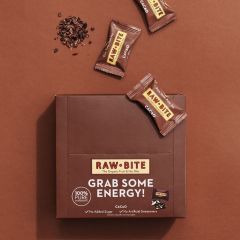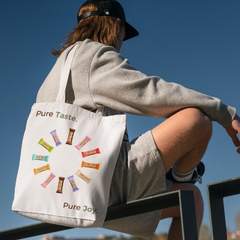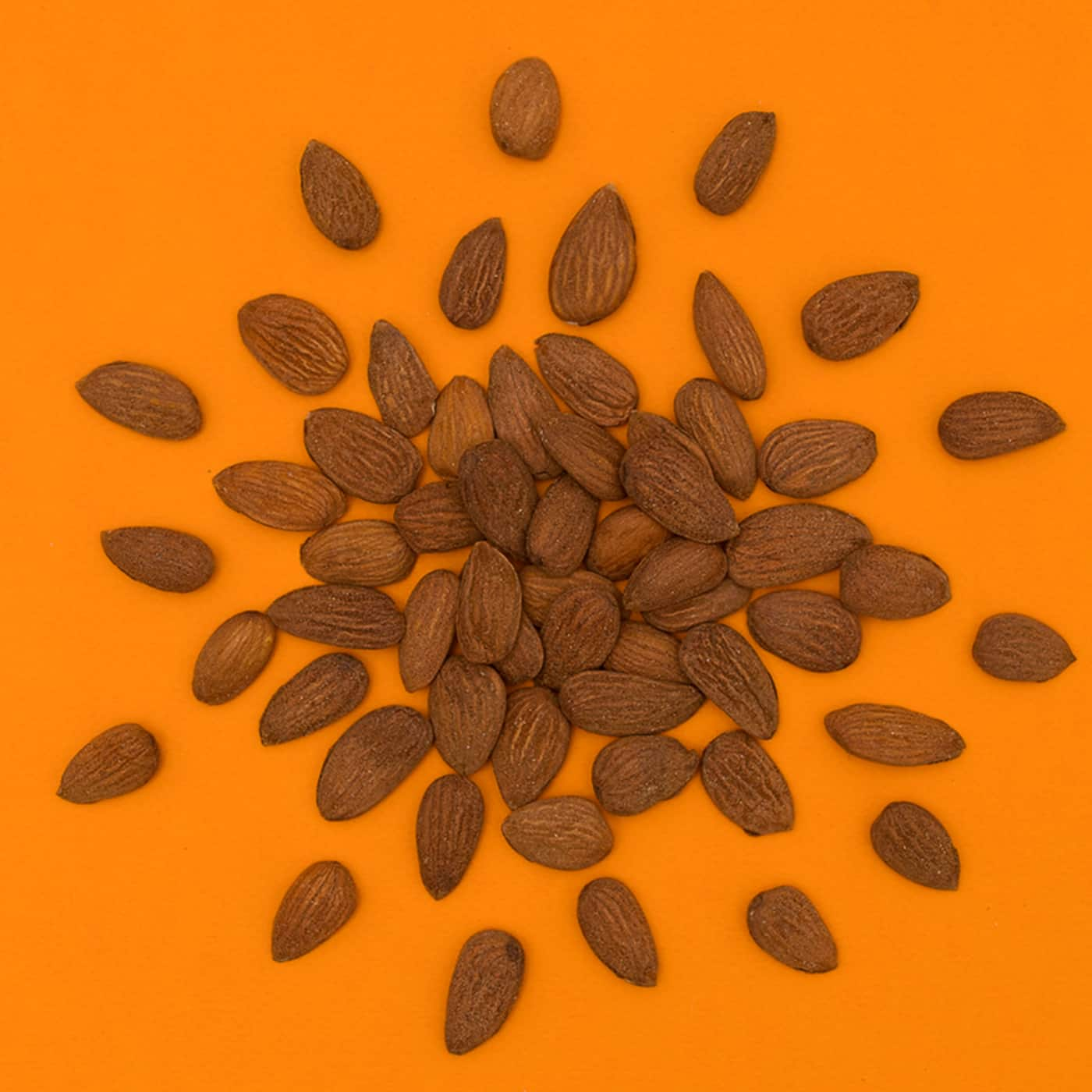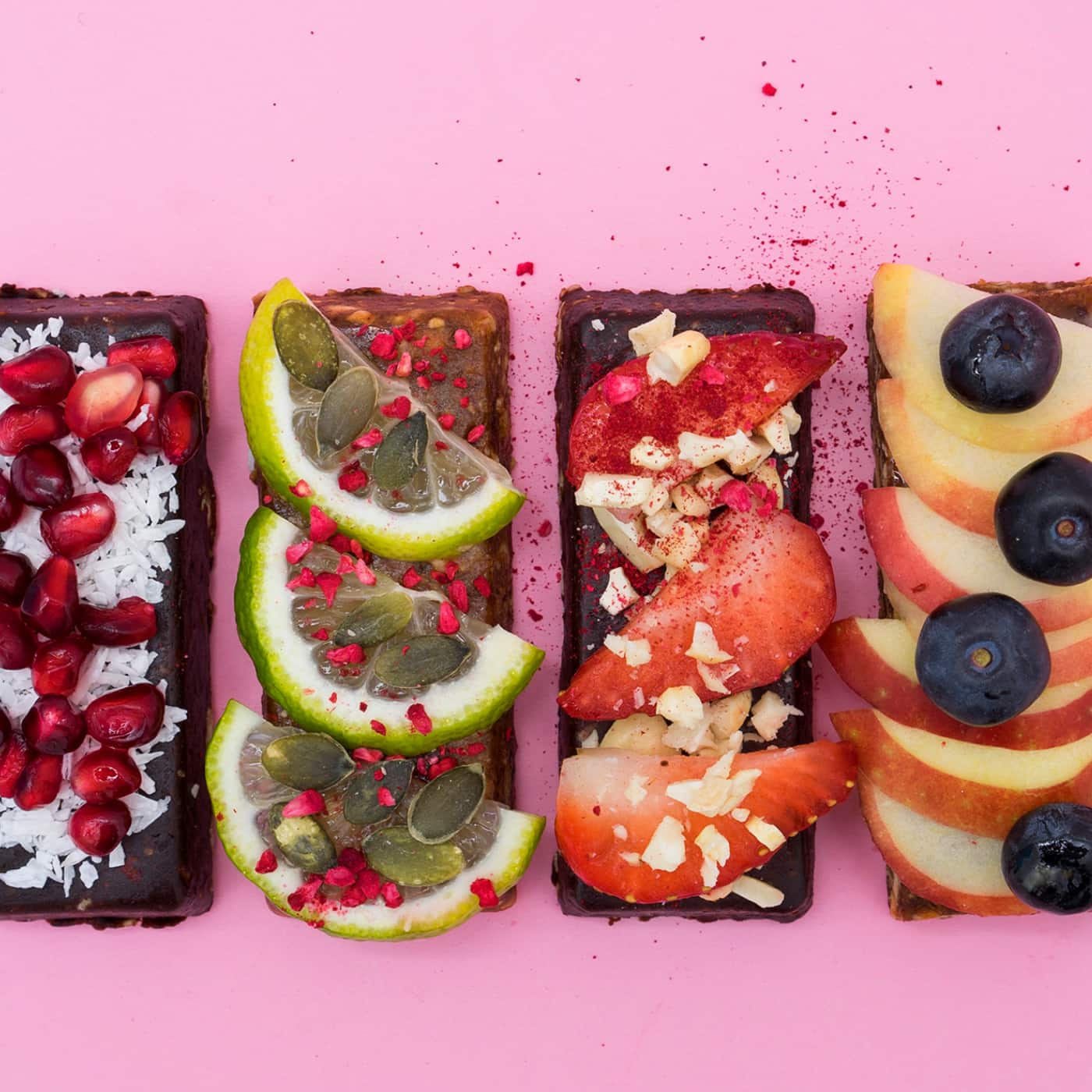Whether your aim is to get fit, boost your energy and health levels, build muscles or simply stay in shape, protein-packed veggies, grains and nuts should play a leading role in every meal!
Proteins, carbohydrates and fats are the three main nutrient groups and are essential for a healthy body. The body needs protein for muscle growth and to synthesize its own proteins. There are a wide range of foods that are rich in proteins – some, including nuts, rice and pumpkin seeds are contained in our bars, especially the RAWBITE Protein bars. Read on to find out more about them and other vegan sources of protein.
Nuts – packed with proteins
Calorie bombs? Research has discredited this old assumption. While it is true that nuts and seeds contain a lot of calories and a high proportion of oil, the fats in nuts are mostly “good” fats that help to lower cholesterol and can help to protect against strokes and cardiovascular disease. Vitamins, fibre, minerals and plenty of plant-based proteins: nuts are real superfoods and are simply packed with energy! Cashews have the highest content of protein, followed by peanuts and hazelnuts.
Pumpkin seeds – small package, big contents
Nutty, crunchy and so tasty! Pumpkin seeds are great in your morning muesli, scattered over a salad, as a crunchy topping for soups or in rice dishes. The small seeds have a high protein content: 30 grams per 100 grams. They are also rich in zinc, iron, selenium, magnesium, vitamin E, beta-carotene and unsaturated fatty acids. And on top of all that they also contain antioxidants that help protect against free radicals. Happy snacking!
Rice – a great source of energy
Mention rice and most people will probably think of carbohydrates, vegan sushi or rice pudding – but not necessarily protein. These small grains, popularly eaten as a side dish for curries and Mediterranean vegetables, are also a wonderful source of protein. One hundred grams of rice contain 7 grams of protein. And that's not all: rice is also packed with minerals such as iron, magnesium, potassium and zinc, making it one of the most valuable foods!
Lentils – protein experts
These members of the legume family are a fantastic source of protein. Lentils also contain a substantial proportion of zinc, which boosts the immune system and can help to protect against colds. And that’s not all: they contain hardly any fat (1.5 grams per 100 grams) and are rich in fibre. Lentils are versatile, and can be included in stews and soups, in vegan burgers and added to salads. Thanks to their shorter soaking and cooking time compared to beans or peas, which are also rich in protein, lentils make great last-minute meals.
Chickpeas – full of beans
Popularly used in falafel, salads or curries, chickpeas also make delicious hummus and great soup toppings. Chickpeas are rich in magnesium, iron, copper and vitamin K, an important building block for blood clotting. Half a tin of chickpeas provides 50% of your recommended daily folic acid. Here’s a great snack tip: mix one tin of chickpeas with 1 tablespoon of olive oil, spread on a baking tray lined with baking paper and roast in the oven at 200°C for 30 to 45 minutes. Then mix with 2 tablespoons fleur de sel and 2 teaspoons garam masala… and try not to eat them all at once!
Quinoa – Andean hero product
This pseudocereal – called thusly because it is not actually a grain but a seed – is loaded with protein and is also gluten-free and full of nutrients. As well as magnesium, quinoa is a rich source of potassium and is an ideal alternative to rice. It can be served as side dish, mixed with vegetables and is great in salads. Quinoa can be used in vegan burgers and is a great surprise ingredient in baked goods. For a special treat, try it in a sweet dish.
Oats – completely awesome
Like many other cereals, oats are loaded with protein. One portion of oat flakes (50 grams) provides 7.5 grams of protein. Oats add texture to fried foods and sweet baked goods. For decades oats have been popular as the basis for muesli or porridge – and are the perfect breakfast to energise you for the day ahead.
Broccoli – a great green
The numbers say it all: this low-fat, low-calorie green vegetable provides 4 grams of protein per 100 grams and 33% protein calories. Plus, it’s packed with folate, manganese, potassium, phosphorus and vitamins C and K. Steamed broccoli is great for pasta and stir-frys or salads. In florets or pureed, it makes tasty soup. And, if that wasn’t enough, broccoli also tastes really good raw!
Pure Taste. Pure Joy.








